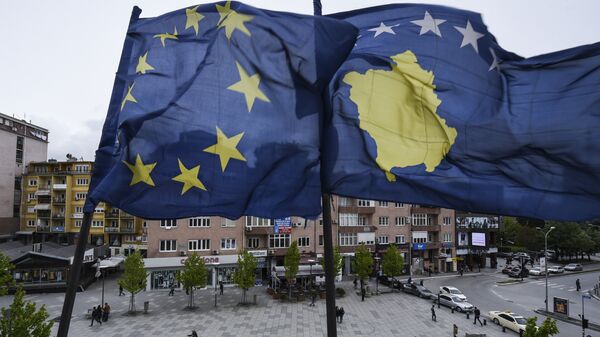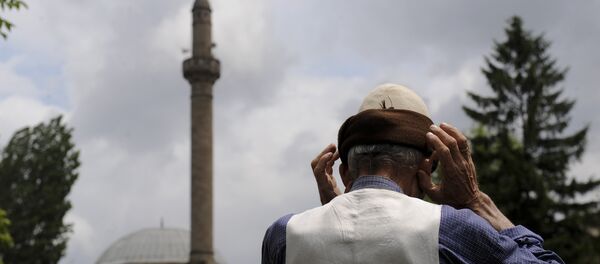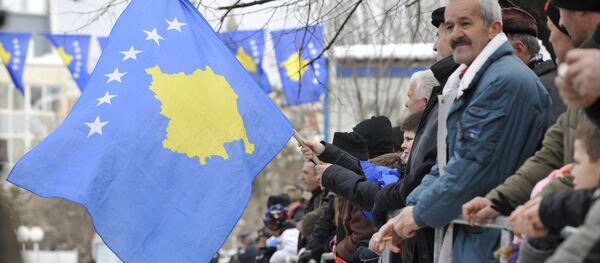“Five EU countries (Slovakia, Greece, Cyprus, Romania and Spain) have not recognized Kosovo’s independence and Pristina apparently hopes that
Brussels will pressure them to recognize it. I don’t think this is going to happen though because the EU already has many problems on its hands. Kosovo’s recent bid to join UNESCO fell through and this came as another blow to its image in the world,” Filipovic told Sputnik Serbia.
He added that Kosovo has always taken orders from Washington’s liberal elite who suffered dual defeats in 2016, first with Brexit and Donald Trump’s election in the US and another looming setback, now in France.
“If [National Front leader Marine] Le Pen wins this year’s presidential elections in France Paris could reconsider its earlier decision to recognize Kosovo,” Filipovic said.
Pristina-based political scientist Nedzhmedin Spahiju disagreed, hailing Hashim Thaci’s call to Moscow and Madrid as a sign of his diplomatic maturity.
He said that Kosovo is not alone and that President Trump’s recent congratulation on Kosovo’s ninth independence anniversary was a sign of Washington’s continued support for Pristina.
“I see this call to Russia and Spain as perfectly normal. Spain remains adamant [in its decision not to recognize Kosovo], but Greece and Romania are already showing signs of being ready to do so,” Spahiju noted.
This means that the chances of Russia recognizing self-proclaimed Kosovo are virtually nil.
Kosovo, now mostly Muslim and Albanian-speaking, declared independence in 2008, nearly a decade after the end of a brief and bloody war with the forces of then-Serbia and Montenegro, and is recognized as such by the US and much of the EU.
Russia does not recognize the independence of Serbia’s former province.
Never miss a story again — sign up to our Telegram channel and we'll keep you up to speed!




